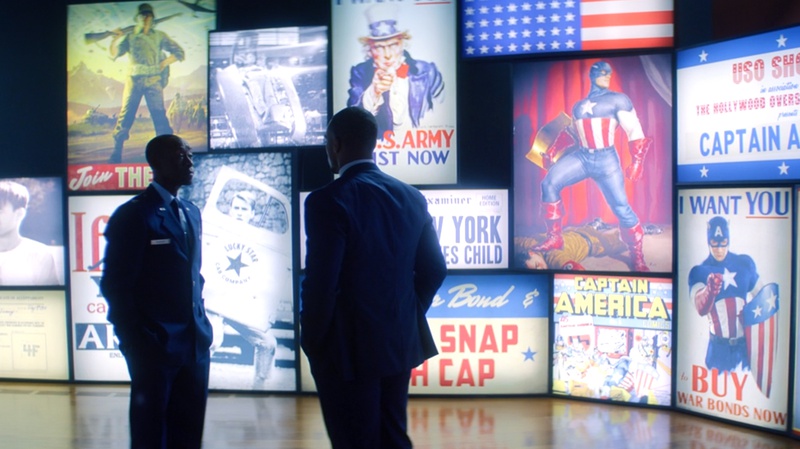
While The Falcon and the Winter Soldier ’s premiere ends on a major cliffhanger, the biggest shocker of the episode happens less than 15 minutes into its runtime.
What many suspected to be a funeral or memorial service for Steve Rogers turned out to be an event at the Smithsonian which saw Sam Wilson turn the iconic Captain America shield over to the authorities.
AN EARLY SURPRISE

The show’s trailers, and even the scene in Avengers: Endgame in which Steve Rogers passed the shield on to Sam, made it obvious Sam saw the acceptance of it as a huge responsibility. It has been made clear that he didn’t feel entirely ready to take on the weight of the mantle. However, even though promotional material has hinted that the government may want to go in a different direction with the idea of Captain America, Sam willingly giving up the shield was a surprise to many viewers.
It seems a little odd for Sam to go against Steve’s wishes for the shield, despite his own personal feelings of worthiness to carry it. There’s also the matter of Sam giving up that symbol to the government after being on the run from the authorities for so long; it seems strange that he would “trust” them with that symbol after spending so much time hiding from them with its original owner, but it’s possible that he handed it over in order to avoid more potential trouble with them down the line.
Regardless, this episode has shone a new light on that Endgame scene. What originally seemed like a way to keep the general audience up to speed for future projects (basically, explaining the passing of the Captain America mantle) now has an added heaviness after Sam hands over Cap's weapon of choice. He seems to have done so on his own accord, which makes it that much more sad.
A MORE COMPLEX STORY

Sam’s decision also changes the perception of his arc in The Falcon and the Winter Soldier . What initially looked to be a story of him working to try to prove to everyone his worthiness to wield the shield (and perhaps the mantle) of Captain America is now shaping up to be a bit more complex.
As previously stated, Sam seems to have turned over the shield on his own volition, with the pressure to do so not coming from any outside sources. Instead, it appears to stem from internal struggles involving his own self-image as well as, perhaps, how he believes the world sees him. This could be affected by things ranging from not being a super soldier like Steve (“I do what he does, just slower”) to racial issues hinted at by the creators, like how some might react to a Black man taking the position of Captain America.
CONTINUING A LEGACY

After handing over the shield, Sam’s portion of “Episode 1” shifts its focus to his relationship with his family. The superheroics from the beginning of the premiere versus the more tame, down-to-earth setting viewers see Sam in later on don’t appear to tie in much with each other beyond the news report in the final scene, but there’s a parallel that might come into play later on: dealing with legacy.
The start of the episode sees Sam essentially washing his hands of the Captain America legacy which, as seen at the end of the episode, puts it in the hands of others. However, as showcased in the back half of the premiere, he is not at all willing to do the same for his family’s company. It’s not yet clear why he feels capable of handling one but not the other, but the idea of someone’s legacy being in their hands is something that is being set up to be a major theme of this series.
Many still believe that Sam Wilson will be the one holding that shield at the end of The Falcon and the Winter Soldier , but as fans have now seen there is going to be much more for him to overcome over the course of the series than many Marvel fans initially thought. It looks like Sam may have made a big mistake relenting control of the shield and by extension, the mantle of Captain America. He’s likely already let his friend down by putting Cap’s legacy in the government’s hands, and by doing so he’s created a bigger hill for himself to climb than just living up to whatever he believes to be Steve’s - and the world’s - expectations.












